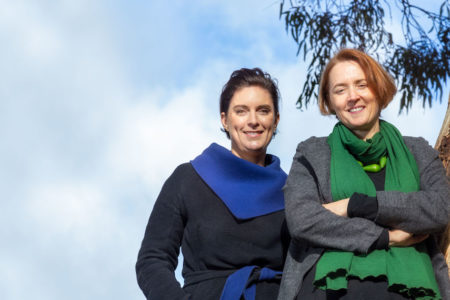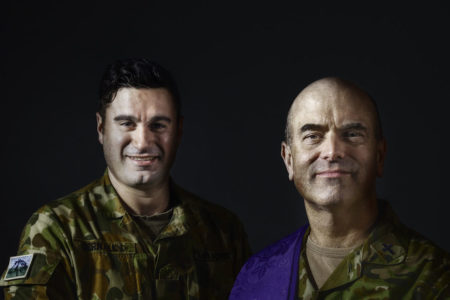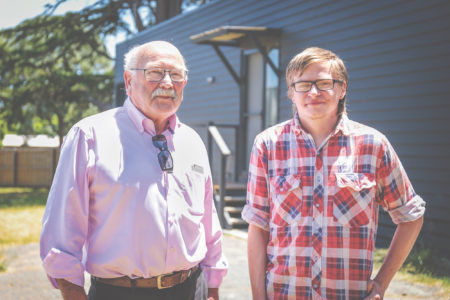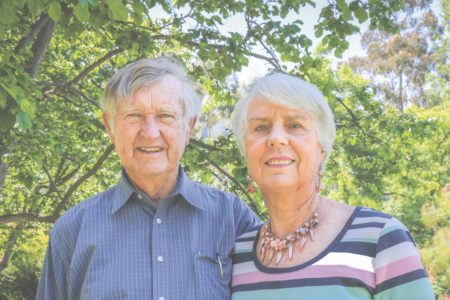Interviews by David Southwell
Anne Warren
I always have had a heart for Aboriginal people. I grew up in Bairnsdale, East Gippsland in Victoria. We were 69km from Lake Tyers Mission Station (now called Lake Tyers Aboriginal Trust). As a child I would see the families come in for the Bairnsdale Show and hear my parents talking about the Indigenous people and the Mission. I told them I wanted to go and play with the kids there.
Their answer was it was not allowed. We were all separated from each other at that time. We did not know what was happening. We knew so little of what was happening in those days. There were no news stories or books around on the subject. It was all just hidden.
In later life, I read that the reserve gate was locked and if residents left without permission they were fined. If people entered without permission they were summonsed for trespass. It was against government regulations for residents to own a car, so they had to walk the 25km to get into town at Lakes Entrance.
The people worked under supervision. The only schooling on the reserve was a primary school. The approach was paternalistic and the people were demoralised.
I always knew I wanted to work with Aboriginal people and once my daughters had left school I took my chance to follow my dream.
From 1994 to 1995 I worked as a post-primary teacher at a place about 80km east of Alice Springs with about 400 Arrernte people whose English was their second or third language.
From 1998 until 2002 I worked for the Institute for Aboriginal Development in Alice Springs. It was established by the church in 1969.
I worked as a lecturer in the Advanced Diploma of Aboriginal Management, where I consider I learnt far more than I imparted.
For example, you cannot ask questions of Aboriginal people in the Territory. I am a person who asks questions all the time, so that was the most difficult thing for me. An alternative way to start a conversation is to talk about photographs because people are really interested in photos.
If I wanted to know something I would share something of mine. We had Elders come to talk about cultural matters.
I loved my two years in that program, which I then “Aboriginalised”, meaning I left so my Aboriginal co-lecturer could have my position.
Later I worked as a WELL teacher (Workplace English Language & Literacy program) at The Granites Gold Mine and elsewhere in the Tanami Desert (in the Northern Territory). I loved it all so much, including the beautiful spirit-filled landscapes.
I also learnt the very sad stories of what happened in the past. I met people who had been “stolen” as children and learnt about the policy’s terrible effects.
After my retirement I was invited to be a Presbytery representative on the Leprena Oversight Committee, now called the Tasmanian Regional Committee UAICC (Uniting Aboriginal and Islander Christian Congress) in Hobart.
In 2017, I met Alison. I learnt straight away that Alison is a huge welcomer. She’s a really warm, open, friendly and inclusive person. This helps make her a wonderful networker who has excellent connections with people and organisations.
I regard Alison as a very close friend and admire her greatly. She is a great role model and mentors the young people who work at Leprena. Together they have an amazing outreach in the community.
So many people don’t know how to go about meeting Aboriginal people, they don’t know how to form relationships because it is not part of their life. Alison helps make these connections.
Alison and I are on a Kingston UC subcommittee looking at developing an Aboriginal Culture and Education Centre on the land available at the church. We are looking to journey together as partners. This is the way we need to be going.
People need to know and understand the history of colonisation and its continuing effect on Aboriginal people. A lot of people say “it’s nothing to do with me, I wasn’t living in those days”, but terrible things happened and not really so long ago.
We as a church, the whole church, have the opportunity to do something about this. At Kingston UC we are starting the journey of Walking Together. How exciting and fulfilling that is.
I continue to learn from Alison and others to be more culturally aware. We come from our own cultural ways of thought and speech. We can say or think the wrong thing because we are still entrenched in our own culture.
I am constantly being surprised and reminded there is another way of looking at that. We have a long way to go to Walk Together into a just and reconciling future.
Alison Overeem
I have been working at Leprena for six years and have been Centre Manager for the last four. For me, my journey makes sense, but it took a while for it to make sense.
The Methodist Church is big in my family’s background. My grandfather’s grandmother is Fanny Cochrane Smith, who is the first recorded speaker of Tasmania’s Aboriginal languages. She was doing community development in the late 1800s, blending Christianity, Aboriginality and spirituality, but none at the cost of the other.
I grew up near the Methodist Church where she donated land in Nicholls Rivulet. My grandfather was the caretaker. I am the seventh out of a family of eight.
My mother had a virus carrying my younger sister, Belinda. As a result Belinda couldn’t walk or talk, so I spoke for her and I walked for her. They said my sister with all her conditions would live to age of 12, but love kept her alive to the age of 37. Up until 12 years ago, when we lost her, she was my faith.
I always say Belinda couldn’t speak a word, but she told me everything I needed to know.
My family is my compass. Advocating for social justice, being a good person and being a voice for the voiceless are the values I grew up with. That is my faith still and always will be.
When my sister was born, a Catholic priest told my mother that Belinda’s condition was the result of all her sins. My mother really struggled with that and took us all out of church. What that did to Mum affected our journey, not of our faith, but in church.
I was the first in my family to go to university and washed dishes in an aged care facility to support myself. In 1988, there was a position vacant to coordinate an Aboriginal playgroup one and a half days a week and I said: “I’ll do this for now”.
Then I got approached to be a director for a multi-functional Aboriginal centre and I thought I would do that for 12 months. But I fell in love with the difference it made in children’s and families’ lives and I stayed for 24 years.
My faith has always been that children and families are heard and listened to and that culture is the healing, the thing that keeps us together. Those connections and interconnections have lasted a lifetime.
When I came to Leprena, all the children started to come back.
When you look at things through an Indigenous lens you look at the whole picture, you don’t just look at one part of someone, you need to engage yourself in their history, their present and future. My culture is my compass. We’re better when we’re a collective. That’s our faith and our faith needs to be in each other.
That sense of community, that sense of social justice for vulnerable people living on the edge, that really is the story of Jesus. My whole life has paralleled what the Scriptures have been trying to say to people, that we need to be a church of walking together and social justice that not only changes people’s days, but changes people’s lives.
Kingston UC is pivotal in my relationship with the Church and my faith.
Two years ago, I was asked to do a Welcome to Country for the new disability-supported accommodation the church built. Ironically, 30 years ago, an organisation was trying to set up disability-support accommodation in the Kingston area and people were complaining about it devaluing their houses. The house never opened because of peoples’ ignorance.
But 30 years later I walked into Kingston UC to do the Welcome to Country for a disability accommodation. It still gives me goosebumps. It was something I believed in and had faith in. It was meant to be.
When I first went to Kingston I would look for Anne. She was like my safety net. Anne is warm, kind and non-judgmental. I have never heard that lady say anything derogatory about anybody. She wants to learn. She’s amazing.
Anne empowers and embraces the young people here. She believes in us and thinks we are integral to the life of Kingston and the wider community.
She’s genuine. When it comes to our mob, once we love you, we love you good. I can safely say we love Anne
She’s also formed friendships with my parents, who wouldn’t have gone near a church otherwise. Meeting people like Anne has given a lot healing for
my family.
Aboriginal culture is all about deep, deep listening and deep, deep hearing. When we look at those Scriptures through knowledge and the First Peoples’ ways of being, the impact is just astounding.
I love the phrase of “decolonising the Scriptures”. Like Fanny Cochrane Smith, we need to balance the cultural message and the Christian message with neither being a detriment to the other. Blending them like a threads on a mat.
I remember when I walked on to the Kingston property I said: “I think we’re going to end up here” and four years down the track it’s a big possibility that Leprena will move there. There’s a bigger plan. I believe it’s the creative Spirit and our ancestors all saying this is time for us to be together, for culture and Christianity to not be separated but be the one story.





